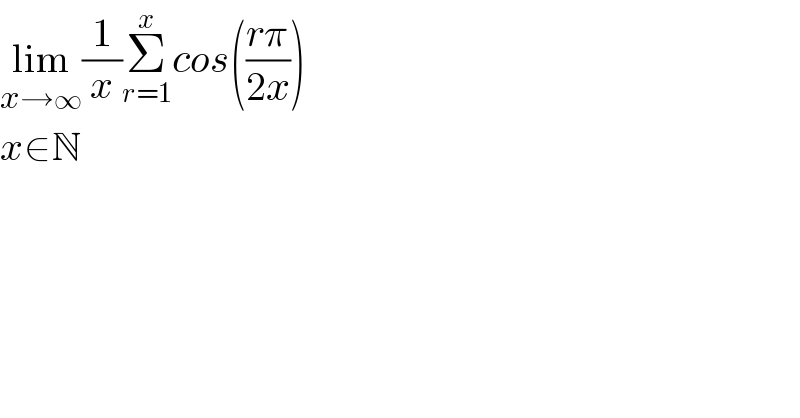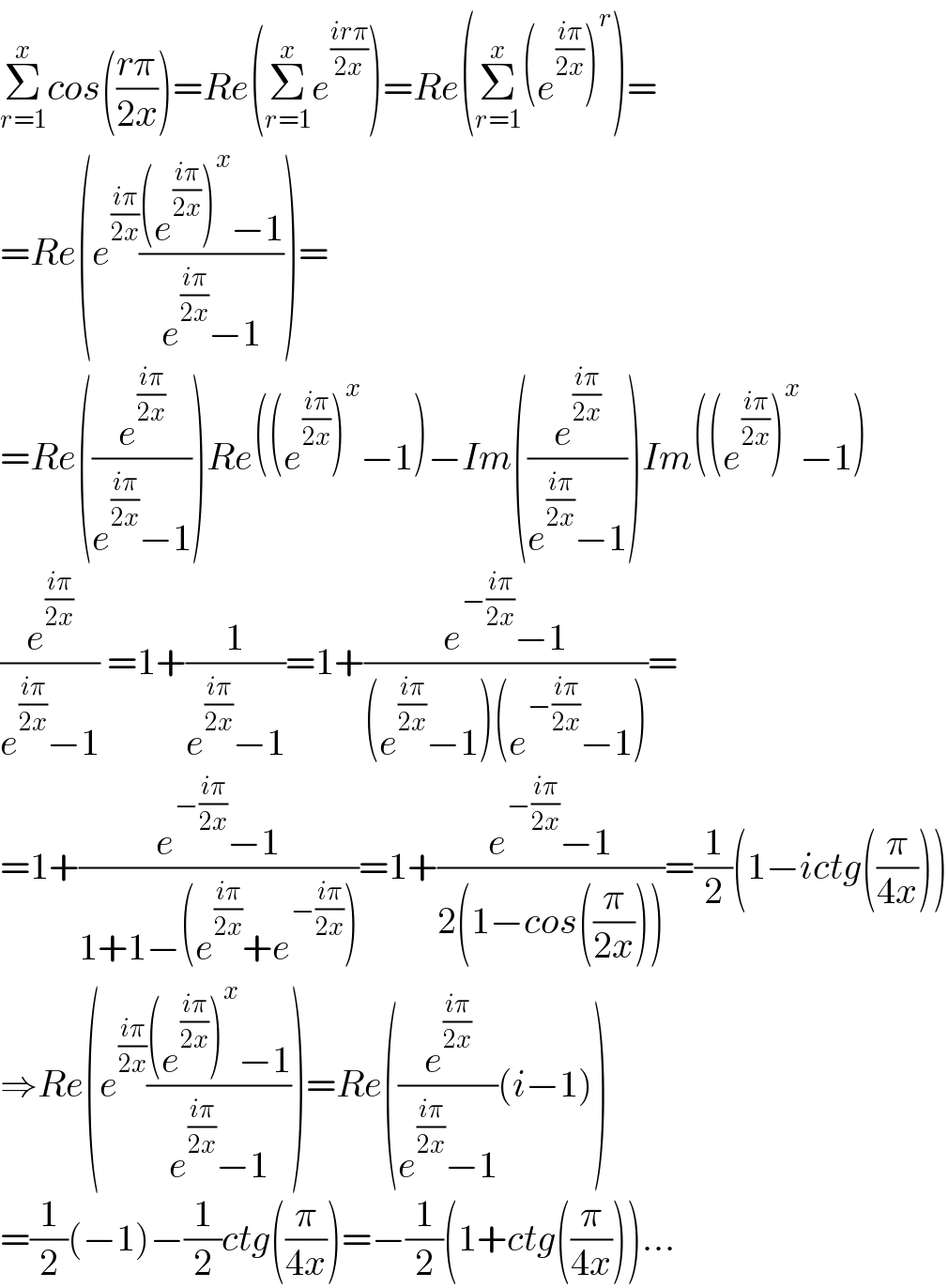
Question and Answers Forum
Previous in Relation and Functions Next in Relation and Functions
Question Number 158334 by alcohol last updated on 02/Nov/21

Commented by aleks041103 last updated on 02/Nov/21

Commented by alcohol last updated on 02/Nov/21

Commented by puissant last updated on 03/Nov/21

Answered by aleks041103 last updated on 02/Nov/21

